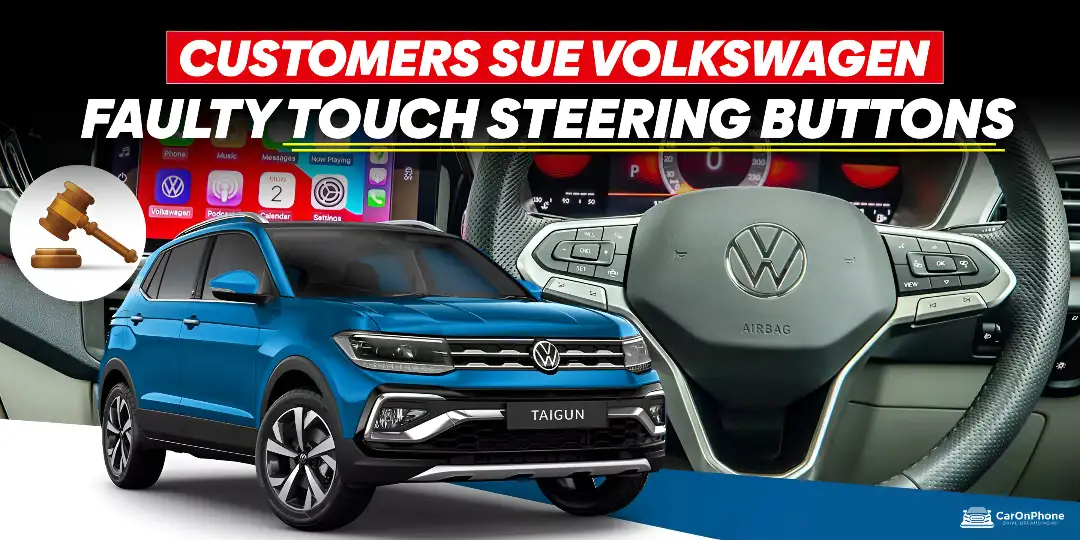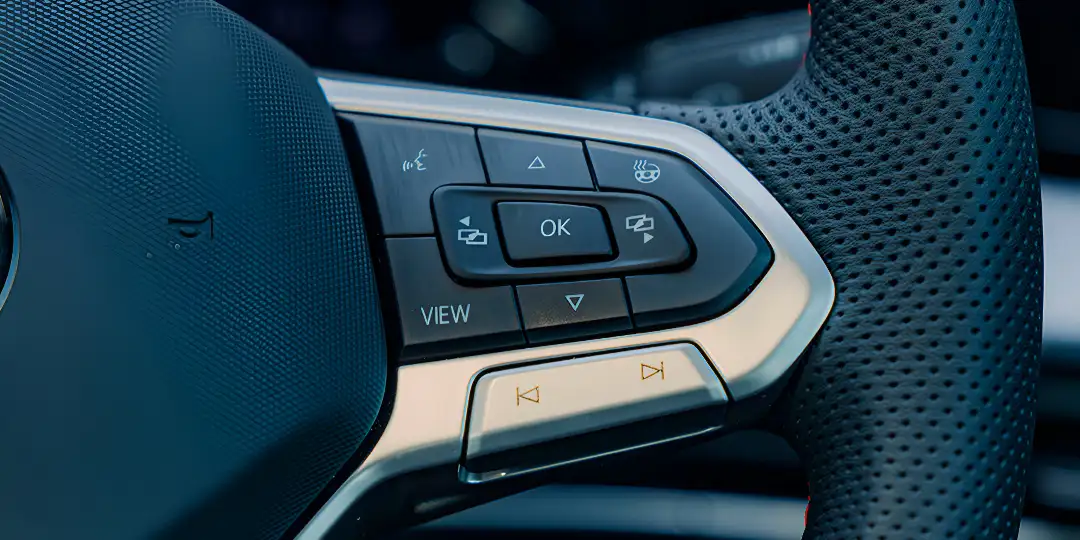VW Customers Sue Automaker Over Faulty Touch Steering Buttons
- What the VW steering wheel lawsuit is about, who filed it, and why owners say touch controls feel unsafe.
- Where this leaves ID.4 drivers today, what VW has changed already, and what to watch next.

Volkswagen customers are suing the brand over faulty touch steering buttons. This story centers on drivers who say the touch-sensitive controls on the wheel react when they barely graze them.
This article explores what sparked the case, what owners report, and how Volkswagen has responded so far. If you have a newer VW with touch controls, this will help you understand the stakes, and your options.
Catch the latest launches and updates on CarOnPhone!
Why VW customers sue automaker over faulty touch steering buttons

Two Volkswagen ID.4 owners filed a complaint in New Jersey. Their case targeted the 2021 to 2023 models’ capacitive steering wheel buttons.
According to them, those selfsame buttons are overly sensitive, and end up triggering features without intent. This also, as they added, poses a safety risk.
The filing seeks class-action status and argues that Volkswagen failed to adequately fix or disclose the issue to owners.
What exactly is the VW touch buttons problem?
Owners say a light brush of the hand can re-engage adaptive cruise control while parking, which can cause unexpected movement.
One plaintiff reports her ID.4 surged while pulling into a space after her hand made minor contact with a haptic control, leading to an injury and more than 14,000 dollars in damage.
Another owner says a similar moment ended with a garage impact.
These accounts mirror multiple complaints logged with the National Highway Traffic Safety Administration, often tied to low-speed maneuvers where hands can graze the controls.
How broad is the VW steering wheel lawsuit, and who else is affected?

Although two owners are named, the filing references additional ID.4 complaints submitted to regulators about unintended acceleration, emergency braking glitches, and crash-related injuries.
That said, the suit as filed focuses on the ID.4, and it argues that the combination of sensitive touch inputs and close-quarters driving increases the chance of unintended activation.
Has Volkswagen already changed course on touch controls?
Volkswagen has acknowledged customer frustration with capacitive buttons and moved back to physical switches on newer products.
Recent reporting notes that current models, including the latest Golf GTI, have returned to traditional steering wheel buttons after sustained criticism of the haptic setup.
This shift helps future buyers, but it does not automatically retrofit owners who already have the touch hardware installed.
What about VW Golf steering issues or VW Tiguan touch controls?
The lawsuit centers on ID.4 steering wheel inputs, not the broader VW lineup. However, capacitive steering controls did indeed appear across several recent VWs.
The company’s pivot back to physical buttons is a positive response to the widespread feedback from drivers, media, and dealers.
What should owners do right now, and what comes next?

This lawsuit targets the ID.4’s capacitive steering wheel controls, argues they are too sensitive, and seeks relief for owners who say the design can cause unintended activation.
VW has begun phasing touch buttons out in favor of physical controls, which supports the criticism, but existing owners may need case-driven remedies, dealer support, or both.
So if you’re experiencing Volkswagen faulty steering behavior that seems to source from touch inputs, here’s what you need to do:
- Document incidents: Keep notes, photos, and service records if you experience VW touch buttons problem behavior, especially during parking or low-speed maneuvers.
- Talk to your dealer: Ask them about software updates, sensitivity settings, or steering wheel replacements. Limit your talk to points that may reduce misinputs. Remember to log your visit.
- Stay updated: Watch the case docket and owner forums. If the court certifies the class, affected ID.4 owners could receive notices about remedies or reimbursement.
Tags:
CarOnPhone is your one-stop destination to see all upcoming cars, latest cars, released cars, and EV Cars, and compare Cars in all Car Brands. Stay tuned and follow us to update yourself on the automotive world.











